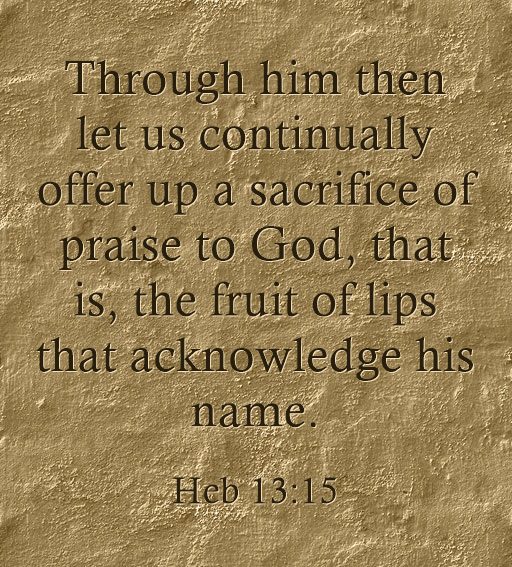Here is a Sunday school lesson or Bible study about praise.
The Command to Praise
Psalm 150:1-2 “Praise the LORD! Praise God in his sanctuary; praise him in his mighty heavens! Praise him for his mighty deeds; praise him according to his excellent greatness!”
Praise is mentioned 238 times specifically by name in the Bible and almost half of the mentions of praise found in the Bible are in the Book of Psalms (137 times) so God is highly interested in praising Him because “in death there is no remembrance of you; in Sheol who will give you praise” (Psalm 6:5) and so we are commanded to “Sing praises to the Lord, who sits enthroned in Zion! Tell among the peoples his deeds” (Psalm 9:11) and “Shout for joy in the Lord, O you righteous! Praise befits the upright” (Psalm 33:1) because we’ve been redeemed by the Son of God and God has freely given us His grace (Eph 2:8).
Why does the psalmist write more about praise than any other author in the Bible?
What are a few of the reasons we should be praising God?
Can you praise God in song (Psalm 30:4)?
The Sacrifice of Praise
Hebrews 13:15 “Through him then let us continually offer up a sacrifice of praise to God, that is, the fruit of lips that acknowledge his name.”
God loves the praises of His people and so Paul, in writing to the church at Rome, reminded them, “by the mercies of God, to present your bodies as a living sacrifice, holy and acceptable to God, which is your spiritual worship” and part of that is to offer God thanksgiving for all things and to always “give thanks in all circumstances; for this is the will of God in Christ Jesus for you” (1st Thess 5:18). The Apostle John writes in Revelation 19:5 that “from the throne came a voice saying, “Praise our God, all you his servants, you who fear him, small and great” so we who fear Him are to praise Him. In one case, when the crowd saw Jesus’ performing signs, “amazement seized them all, and they glorified God and were filled with awe, saying, “We have seen extraordinary things today” (Luke 5:26) and it was extraordinary for our God is an awesome God and we ought to give Him the sacrifice of our praise.
What does praise mean to you?
Why is it called “a sacrifice of praise?”
How can we “continually offer” praise up to God?
Spontaneous Praise
Luke 23:47 “Now when the centurion saw what had taken place, he praised God, saying, “Certainly this man was innocent!”
At the crucifixion, there was spontaneous praise but not from the disciples, from the Jew nor from Jesus’ “acquaintances and the women who had followed him from Galilee stood at a distance watching these things” (Luke 23:49). The praise came from the Roman centurion who “praised God” and declared, “Certainly this man was innocent.” What was it that the centurion saw take place? It was an ominous occurrence at “about the sixth hour, and there was darkness over the whole land until the ninth hour” (Luke 23:44) probably much like the darkness that blanketed Egypt when God was bringing Israel out of their bondage of slavery (Ex 10:21). The Roman centurion was a “captain of 100” and the only way one became a centurion was to be noticed for their diligence, skill, and courage in battle so this man’s declaration is significant but no less so than the thief on the cross who came to believe in Christ. This explains why the Roman centurion “praised God” because he had seen all of the miraculous signs, and declared at the cross, “this man was innocent.”
Why did the Roman centurion praise God?
Why was the centurion certain about Jesus’ innocence?
Did the supernatural events that the centurion saw convince him about Jesus (Matt 27:52-54)?
Godly Praise
Luke 18:42-43 “And Jesus said to him, “Recover your sight; your faith has made you well. And immediately he recovered his sight and followed him, glorifying God. And all the people, when they saw it, gave praise to God.”
At a prayer vigil my wife and I had been attending, we kept experiencing instantaneous answers to some our prayers for those we’d been praying for. That is, our prayers were being answered at the very moment that we prayed them, but we didn’t know it until later. Of course this didn’t happen every time, but when it did, it left us praising God. The point is this glorifies Him, not us who pray. That’s why we call these “praises and prayers” and after a very recent healing, we gave God praise for doing what we prayed for because He answered us (unknown to us) at the very moment we had asked Him. And all of the people in the prayer vigil “when they saw it, gave praise to God.” Jesus was always focused on the will of the Father and the will of the Father is that God is glorified and the Son of God is given glory. That’s part of the reason we pray in Jesus’ name, besides His blood gives us access to the throne of grace (Rom 5:2; Heb 4:16) but in praying, our goal is to have God’s name be glorified (John 15:16) so that we can praise Him even more.
Why should God receive glory even in unanswered prayers or when the answer is no?
Are we glorifying God by praising Him?
How else can we “praise God” in our lives?
How can we glorify God in our lives?
Praise of the Lord
Joel 2:26 “You shall eat in plenty and be satisfied, and praise the name of the Lord your God, who has dealt wondrously with you. And my people shall never again be put to shame.”
This tender prophecy written to God’s beloved nation of Israel or to the “children of Zion” (Joel 2:23) was intended to comfort the nation and know that God still has plans for her just as Jeremiah the Prophet wrote (Jer 29:11). We can’t claim these verses for ourselves because they were written to Israel but do some of these same principles apply for the believer in Christ as Paul wrote “Everyone who believes in him will not be put to shame” (Rom 10:11) and is found throughout Scriptures (Gen 15:6; Psalm 71:1). Claiming certain Bible verses for ourselves can lead us into error because if people want to claim Jeremiah 29:11 as their life verse, does that mean they want to claim Israel being destroyed as a nation, thousands killed, and then being taken into captivity and experience a life of the hard bondage of slavery?
How do these Scriptures the Old and New Testament teachings that “the just shall live by faith” (Hab 2:4; Rom 1:17; Heb 10:38)?
What would you tell someone who claimed Jeremiah 29:11 as their so-called “life verse?”
How can we know when certain Bible verses apply to us and when they don’t?
Conclusion
I urge you in your study to look at all of the Bible verses and read them aloud in the class so that you can get the most out of this lesson on praise and one thing that we’ve read is that God is worthy to be praised, honored, and glorified. If you are interested in reading more about praise and what it looks and sounds like, I suggest you read the Book of Psalms because in this book, you’ll find the highest concentration of praises in the Bible so the conclusion is, “whatever you do, in word or deed, do everything in the name of the Lord Jesus, giving thanks to God the Father through him” (Col 3:17) but above all “do all to the glory of God” (1st Cor 10:31) and we can do that with praise.
How do you praise God?
Can we praise God with prayers, words, songs, or obedience; or all of them?
What has changed in your understanding about praise in this study?
Article by Jack Wellman
Jack Wellman is Pastor of the Mulvane Brethren Church in Mulvane Kansas. Jack is also the Senior Writer at What Christians Want To Know whose mission is to equip, encourage, and energize Christians and to address questions about the believer’s daily walk with God and the Bible. You can follow Jack on Google Plus or check out his book Teaching Children the Gospel available on Amazon.
















